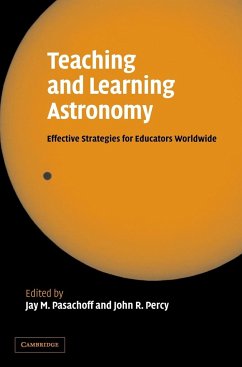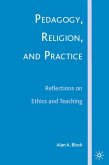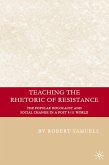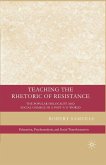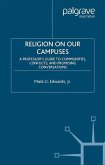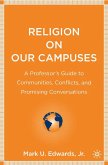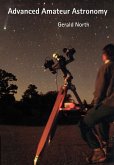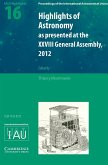Short description/annotation
This volume highlights astronomy in the curriculum, and addresses how the teaching and learning of astronomy can be improved world-wide.
Main description
Astronomy is taught in schools worldwide, but few schoolteachers have any background in astronomy or astronomy teaching, and available resources may be insufficient or non-existent. This volume highlights the many places for astronomy in the curriculum; relevant education research and 'best practice'; strategies for pre-service and in-service teacher education; the use of the Internet and other technologies; and the role that planetariums, observatories, science centres, and organisations of professional and amateur astronomers can play. The special needs of developing countries, and other under-resourced areas are also highlighted. The book concludes by addressing how the teaching and learning of astronomy can be improved world-wide. This valuable overview is based on papers and posters presented by experts at a Special Session of the International Astronomical Union.
Table of contents:
Preface; Part I. Astronomy in the Curriculum Around the World: Preface; 1. Why astronomy is useful and should be included in the school curriculum John R. Percy; 2. Astronomy and mathematics education Rosa M. Ros; 3. Astronomy in the curriculum around the world; 4. Engaging gifted science students through astronomy Robert Hollow; 5. Poster highlights: astronomy in the curriculum around the world; Part II. Astronomy Education Research: Preface; 6. Astronomy education research down under John M. Broadfoot and Ian S. Ginns; 7. A contemporary review of K-16 astronomy education research Janelle M. Bailey and Timothy F. Slater; 8. Implementing astronomy education research Leonarda Fucili; 9. The Astronomy Education Review: report on a new journal Sidney C. Wolff and Andrew Fraknoi; 10. Poster highlights: astronomy education research; Part III. Educating Students: Preface; 11. Textbooks for K-12 astronomy Jay M. Pasachoff; 12. Distance/internet astronomy education David H. McKinnon; 13. Educating students with robotic telescopes - open discussion; 14. Poster highlights - educating students; Part IV. Educating teachers: Preface; 15. Pre-service astronomy education of teachers Mary Kay Hemenway; 16. In-service education of teachers Michèle Gerbaldi; 17. Poster highlights: educating teachers; Part V. Astronomy and Pseudoscience: Preface; 18. Astronomy, pseudoscience and rational thinking Jayant V. Narlikar; 19. Astronomical pseudosciences in North America John R. Percy and Jay M. Pasachoff; Part VI. Astronomy and Culture: Preface; 20. Teaching astronomy in other cultures: archeoastronomy Julieta Fierro; 21. Poster highlights: astronomy and culture; Part VII. Astronomy in Developing Countries: Preface; 22. Astronomy Curriculum for developing countries Case Rijsdijk; 23. Science education resources for the developing countries James C. White II; Part VIII. Public Outreach in Astronomy: Preface; 24. What makes informal education programs successful(?)33; Nahide Craig and Isabel Hawkins; 25. The role of science centers and planetariums Nick Lomb; 26. Science education for the new century - a European perspective Claus Madsen; 27. Communicating astronomy to the public Charles Blue; 28. Poster highlights: public outreach in astronomy; Part IX. The Education Programs of the IAU: Preface; 29. A short overview of astronomical education carried out by the IAU Syuzo Isobe; Part X. Discussion; Index.
Hinweis: Dieser Artikel kann nur an eine deutsche Lieferadresse ausgeliefert werden.
This volume highlights astronomy in the curriculum, and addresses how the teaching and learning of astronomy can be improved world-wide.
Main description
Astronomy is taught in schools worldwide, but few schoolteachers have any background in astronomy or astronomy teaching, and available resources may be insufficient or non-existent. This volume highlights the many places for astronomy in the curriculum; relevant education research and 'best practice'; strategies for pre-service and in-service teacher education; the use of the Internet and other technologies; and the role that planetariums, observatories, science centres, and organisations of professional and amateur astronomers can play. The special needs of developing countries, and other under-resourced areas are also highlighted. The book concludes by addressing how the teaching and learning of astronomy can be improved world-wide. This valuable overview is based on papers and posters presented by experts at a Special Session of the International Astronomical Union.
Table of contents:
Preface; Part I. Astronomy in the Curriculum Around the World: Preface; 1. Why astronomy is useful and should be included in the school curriculum John R. Percy; 2. Astronomy and mathematics education Rosa M. Ros; 3. Astronomy in the curriculum around the world; 4. Engaging gifted science students through astronomy Robert Hollow; 5. Poster highlights: astronomy in the curriculum around the world; Part II. Astronomy Education Research: Preface; 6. Astronomy education research down under John M. Broadfoot and Ian S. Ginns; 7. A contemporary review of K-16 astronomy education research Janelle M. Bailey and Timothy F. Slater; 8. Implementing astronomy education research Leonarda Fucili; 9. The Astronomy Education Review: report on a new journal Sidney C. Wolff and Andrew Fraknoi; 10. Poster highlights: astronomy education research; Part III. Educating Students: Preface; 11. Textbooks for K-12 astronomy Jay M. Pasachoff; 12. Distance/internet astronomy education David H. McKinnon; 13. Educating students with robotic telescopes - open discussion; 14. Poster highlights - educating students; Part IV. Educating teachers: Preface; 15. Pre-service astronomy education of teachers Mary Kay Hemenway; 16. In-service education of teachers Michèle Gerbaldi; 17. Poster highlights: educating teachers; Part V. Astronomy and Pseudoscience: Preface; 18. Astronomy, pseudoscience and rational thinking Jayant V. Narlikar; 19. Astronomical pseudosciences in North America John R. Percy and Jay M. Pasachoff; Part VI. Astronomy and Culture: Preface; 20. Teaching astronomy in other cultures: archeoastronomy Julieta Fierro; 21. Poster highlights: astronomy and culture; Part VII. Astronomy in Developing Countries: Preface; 22. Astronomy Curriculum for developing countries Case Rijsdijk; 23. Science education resources for the developing countries James C. White II; Part VIII. Public Outreach in Astronomy: Preface; 24. What makes informal education programs successful(?)33; Nahide Craig and Isabel Hawkins; 25. The role of science centers and planetariums Nick Lomb; 26. Science education for the new century - a European perspective Claus Madsen; 27. Communicating astronomy to the public Charles Blue; 28. Poster highlights: public outreach in astronomy; Part IX. The Education Programs of the IAU: Preface; 29. A short overview of astronomical education carried out by the IAU Syuzo Isobe; Part X. Discussion; Index.
Hinweis: Dieser Artikel kann nur an eine deutsche Lieferadresse ausgeliefert werden.

